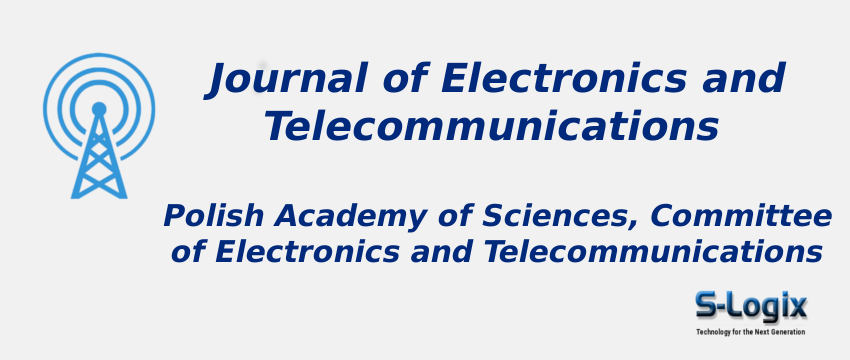Journal Home: Journal Homepage
Editor-in-Chief: Ryszard S. Romaniuk
Print ISSN: 20818491
Electronic ISSN: 23001933
Abstracting and Indexing: Scopus
Imapct Factor :
Subject Area and Category: Computer Science, Computer Networks and Communications, Engineering, Electrical and Electronic Engineering
Publication Frequency:
H Index: 23
Q1:
Q2:
Q3: Computer Networks and Communications
Q4:
Cite Score: 1.6
SNIP: 0.452
Journal Rank(SJR): 0.217
Guidelines for Authors: International Journal of Electronics and Telecommunications Author Guidelines
Publisher: Polish Academy of Sciences, Committee of Electronics and Telecommunications
Country: Poland
